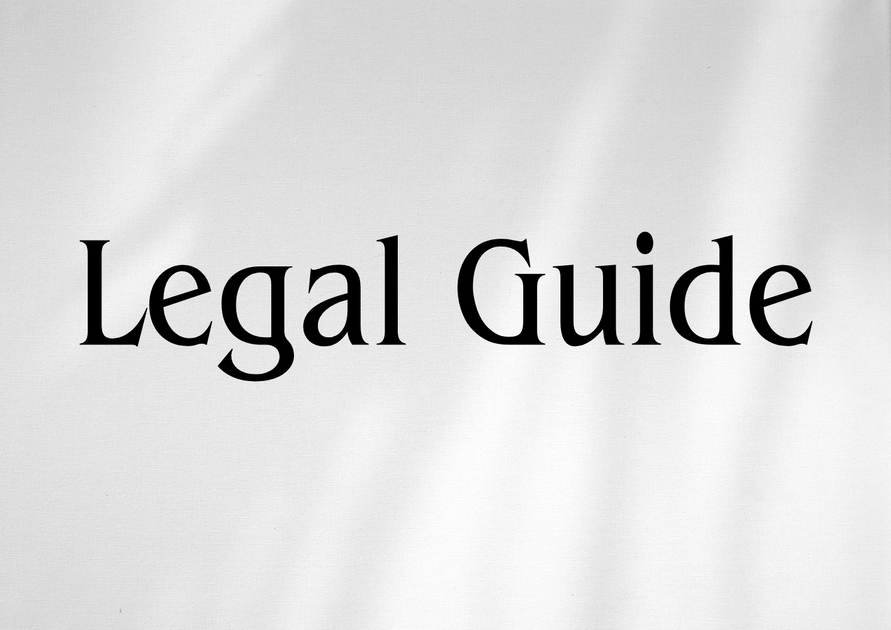Introduction: The Strategic Importance of Joint Venture Agreements in UAE
As the United Arab Emirates (UAE) continues to position itself as a leading international hub for trade, innovation, and investment, Joint Venture Agreements (JVAs) have become increasingly vital tools for both local and foreign businesses seeking to expand operations, pool resources, and access new markets. The dynamic UAE business environment—shaped by comprehensive legislative reforms over the last few years, including Federal Decree-Law No. 2 of 2015 (UAE Commercial Companies Law), its 2021 and 2023 amendments, and Cabinet Resolution No. 16 of 2020—demands a sophisticated understanding of joint venture legal frameworks.
The complexity of structuring, negotiating, and executing JVAs in the UAE has grown with evolving rules on foreign ownership, economic substance, and anti-money laundering regulations. The introduction of the updated Companies Law and evolving best practices have shifted obligations significantly, raising both opportunities and compliance risks. This article provides comprehensive legal insights and actionable guidance for businesses, executives, and legal professionals navigating JVAs in the UAE, combining expert analysis of relevant laws with practical consultancy advice, detailed risk considerations, and real-world examples.
Whether you are a multinational corporation entering the UAE market, a UAE national leveraging international expertise, or an HR manager overseeing cross-border teams, understanding the legal anatomy and strategic risks of JVAs is essential for sustainable business growth and legal compliance in 2025 and beyond.
Table of Contents
- Overview of UAE Joint Venture Laws and Regulations
- Structuring Joint Venture Agreements in the UAE: Key Considerations
- Mandatory Legal Requirements for Joint Venture Agreements
- Recent Legal Updates and Law Comparison
- Legal Risks and Liabilities in Joint Venture Agreements
- Practical Consultancy Insights and Best Practices
- Case Studies and Hypothetical Scenarios
- Compliance Strategies: A Checklist for UAE Joint Ventures
- Conclusion: Navigating the Future of Joint Ventures in the UAE
Overview of UAE Joint Venture Laws and Regulations
The Legal Foundations: Federal Decree Laws and Cabinet Resolutions
The legal regime governing Joint Venture Agreements in the UAE is anchored principally in:
- Federal Decree-Law No. 2 of 2015 on Commercial Companies, as amended in 2021 and 2023 (the “Companies Law”);
- Cabinet Resolution No. 16 of 2020 concerning the establishment of the Positive List and economic substance;
- Guidances issued by the Ministry of Justice, Ministry of Economy, and the UAE Government Portal.
Article 8 of the Companies Law defines the permissible types of companies in the UAE, including Limited Liability Companies (LLCs), Joint Stock Companies, and, under certain conditions, Joint Ventures (“companies by participation”). Joint Ventures under the Companies Law are special contractual arrangements between two or more parties, where each party maintains legal independence but collaborates for a specific business purpose.
UAE Joint Venture Modalities
In practice, UAE JVAs may be structured as:
- Contractual Joint Ventures (unincorporated, no separate legal entity);
- Equity Joint Ventures (incorporated, forming a new legal entity—usually an LLC or Private Joint Stock Company);
- Special Purpose Vehicles (SPVs) for project-based or asset-specific collaborations, particularly in Free Zones.
Structuring Joint Venture Agreements in the UAE: Key Considerations
Choice of Legal Form
The selection between an incorporated or unincorporated joint venture depends on factors such as project size, foreign investment appetite, sector-specific regulatory requirements (e.g., energy, healthcare, real estate), liability concerns, and commercial objectives. Since the 2021 amendments to the Companies Law (notably Federal Decree-Law No. 26 of 2020, effective January 2021), foreign investors in many non-strategic sectors may own up to 100% of the shares in UAE mainland companies, subject to the local economic department’s approval and the relevant licensing authority’s regulations.
Mainland vs. Free Zone Joint Ventures
Joint Ventures can be set up onshore (mainland) or within one of the more than 40 UAE Free Zones. While Free Zones offer flexibility (including 100% foreign ownership, full repatriation of profits, and sector-specific regulations), local market access for Free Zone entities is generally limited, as per Ministerial Decision No. 213 of 2017. Consideration of Value Added Tax (VAT), Economic Substance Regulations, and Emiratisation quotas is also essential depending on location and business activity.
Key Provisions in a Robust JVA
A well-drafted JVA should address:
- Clear definition of business scope and objectives;
- Capital contributions and ownership percentages;
- Management structure and decision-making protocols;
- Profit and loss distribution mechanisms;
- Dispute resolution procedures (with careful consideration of UAE arbitration options and applicable law);
- Intellectual property rights and exit strategies;
- Compliance with anti-money laundering (AML) and economic substance regulations.
Mandatory Legal Requirements for Joint Venture Agreements
Registration and Licensing
Under Article 77 of the Companies Law, an unincorporated joint venture does not have a legal personality and is not subject to registration with the Department of Economic Development (DED). However, where an LLC or other entity is established for a JVA, full registration, licensing, and regulatory requirements apply, including:
- Submission of articles of association and the JVA to relevant authorities;
- Compliance with the UAE Economic Substance Regulations (Cabinet of Ministers Resolution No. 31 of 2019, amended by Resolution No. 57 of 2020);
- Obtaining sector-specific approvals (for activities such as construction, healthcare, or oil and gas).
Foreign Ownership and Strategic Impact Sectors
The introduction of the ‘Positive List’—as outlined in Cabinet Resolution No. 16 of 2020—allows foreign investors 100% ownership in mainland businesses across more than 1000 economic activities. However, strategic impact sectors (such as defense, utilities, and certain financial services) may still require local participation as per Article 10 and Cabinet Decision No. 55 of 2021. Continuous review of the applicable economic department’s requirements is critical.
Corporate Governance and Board Representation
Article 104 and 108 of the Companies Law set minimum requirements for board meetings, quorum, and resolutions. Customized governance arrangements must be incorporated in the JVA and articles of association, especially for entities with joint management.
Taxation and Economic Substance
JVAs, especially those which generate income from specified “Relevant Activities” (banking, insurance, leasing, headquarters, shipping, etc.), must comply with the UAE Economic Substance Regulations—requiring local substance, presence, and annual reporting to the Ministry of Finance. Non-compliance results in administrative fines and potential exchange of information with foreign tax authorities.
Recent Legal Updates and Law Comparison
The Evolving Landscape: 2015 vs. 2021 vs. 2023
| Provision | 2015 Companies Law | 2021/2023 Amendments |
|---|---|---|
| Foreign Ownership | Max 49% (in most sectors; mandatory 51% UAE national ownership) | Up to 100% foreign ownership in many sectors (per Positive List) |
| Registration Requirements | Stringent, often requiring local partner and additional approvals | Liberalized; fewer sectors require a local sponsor |
| Economic Substance Reporting | Not addressed | Mandatory for Relevant Activities under ESR regulations |
| Punitive Penalties | Vague; less severe | Clear tariff of fines, penal provisions clarified (see below for table) |
| Corporate Governance | Traditional, less specific | Flexible, subject to JVA and articles, with clear dispute mechanisms |
Visual Suggestion
We recommend including a comparative flowchart or visual summarizing ‘Old Law vs. New Law’ for ownership, registration, and reporting obligations in JVAs.
Legal Risks and Liabilities in Joint Venture Agreements
Key Risks Identified
Legal and commercial risks faced by parties to a JVA include:
- Inadvertent breach of foreign ownership thresholds (in regulated sectors);
- Failure to comply with Economic Substance Regulations or VAT registration;
- Disputes over management and profit sharing due to vague agreements or conflicting articles;
- Unenforceability of agreements under Shariah, if specific conflict of law provisions are not incorporated;
- Potential for joint and several liability in certain contractual JVs;
- Missteps in dispute resolution mechanisms—especially if proper arbitration clauses and seat of arbitration are not agreed upfront;
- Non-compliance resulting in administrative fines, trading license suspension, or criminal liability under Federal Decree-Law No. 20 of 2018 regarding Anti-Money Laundering (AML).
Penalties Table: Non-Compliance Comparison
| Offense | 2015 Law | 2021/2023 Law |
|---|---|---|
| Operating without proper registration/licensing | Fines up to AED 100,000 | Fines up to AED 500,000; risk of license suspension |
| Breach of Economic Substance Regulations | Not applicable | Fines up to AED 400,000; possible disclosure to foreign authorities |
| Failure to update ownership structure per new law | Undefined | Fines, forced rectification, risk of business suspension |
| AML/CTF non-compliance | General penalties; criminal liability | Fines up to AED 5 million; imprisonment for severe breaches |
Visual Suggestion
Consider including a color-coded penalty comparison chart to illustrate the risk escalation under new legal regimes.
Boardroom and HR Risk Management
Legal liability often extends to directors, managers, and HR executives responsible for implementing and overseeing JVAs. Individual accountability is increasingly scrutinized under Ministerial Decision No. 100 of 2020 and Ministerial Circulars on corporate governance. Regular legal audits and director training are now best practice.
Practical Consultancy Insights and Best Practices
Checklist for a Legally Compliant JVA
- Conduct detailed due diligence on all partners (financial, legal, reputational);
- Map out regulatory obligations based on sector, location, and size;
- Incorporate mandatory provisions on ownership, governance, AML checks, and economic substance;
- Draft bespoke dispute resolution clauses, specifying language, seat, and enforcement of arbitration;
- Institute regular compliance reviews and update agreements as the law evolves;
- Align all JV operations with the Ministry of Human Resources and Emiratisation Emiratisation quotas, where applicable.
Key Contractual Clauses to Future-Proof Your UAE JVA
- ‘Change of Law’ and adaptation mechanisms;
- Exit/termination and put/call options;
- Non-compete and non-solicitation restrictions, tailored to UAE law;
- Audit rights and mutual inspection provisions;
- Clear succession and deadlock resolution procedures.
Case Studies and Hypothetical Scenarios
Case Study 1: Foreign Technology Company in Dubai Mainland
A European software developer seeks to establish a development hub in Dubai via a JVA with a UAE marketing firm. Post-2023 reforms, the foreign partner may own 100% of the equity. However, failure to register proper shareholding structure or comply with Economic Substance Regulations exposes both parties to heavy fines and regulatory intervention. With professional legal review and timely notifications to the DED, compliance is achieved, and the venture experiences seamless market access.
Case Study 2: Healthcare Joint Venture in Abu Dhabi Free Zone
An Asian hospital operator partners with a UAE national to open a specialty clinic inside a healthcare-dedicated Free Zone. Despite Free Zone liberalities, the JVA must be registered with Free Zone authorities, and the venture must report economic substance. If licensing approvals are incomplete, both parties risk license withdrawal and penalties up to AED 500,000.
Hypothetical: Dispute in Construction JV
A contractual JV between a UAE construction leader and a European engineering firm faces management disputes due to ambiguous profit-sharing mechanisms. Failure to designate DIFC-LCIA arbitration in the JVA leads to delayed resolution and business disruption. Lesson: precise contract drafting ensures efficient dispute management.
Compliance Strategies: A Checklist for UAE Joint Ventures
| Compliance Area | Action Steps | Responsible Parties |
|---|---|---|
| Ownership Regulations | Confirm sector eligibility for 100% foreign ownership; update articles if needed | Legal / Board |
| Economic Substance | Assess relevant activities; submit ESR notifications and reports on time | Finance / Legal |
| AML/KYC | Implement internal KYC checks; monitor ongoing transactions; file STR if required | Compliance / HR |
| Licensing and Registration | File all required documents with authorities (DED/Free Zone/Ministry of Economy) | Operations / Legal |
| Evacuation and Exit Strategies | Define in JVA; review annually in board meetings | Board / Legal |
Visual Suggestion
A process diagram illustrating the step-by-step legal compliance process for JVAs in the UAE would enhance understanding and engagement.
Conclusion: Navigating the Future of Joint Ventures in the UAE
The last decade has seen the UAE establish itself as a leading destination for cross-border collaboration and inward investment, buoyed by progressive reforms in company law, corporate governance, and regulatory compliance. The landscape for Joint Venture Agreements in 2025 is complex but represents strategic potential for innovation and market growth. However, mounting regulatory, contractual, and operational risks demand diligent legal planning, continuous compliance monitoring, and an agile approach to contract management and dispute resolution.
The most successful ventures will be those that engage UAE legal consultants at every stage—from due diligence and drafting to implementation and ongoing audit—and remain proactive in tracking updates from the Ministry of Justice, Ministry of Human Resources and Emiratisation, and other official bodies. Businesses are strongly urged to future-proof their JVAs with robust legal architecture, director and HR training, and smart compliance systems, supporting sustainable partnerships within the UAE’s evolving regulatory environment.
Key Takeaways
- Understand and adapt to the most recent UAE law 2025 updates relevant to joint ventures;
- Implement best practices in contract drafting, governance, and dispute resolution;
- Pursue ongoing compliance—both for legal protection and reputational security;
- Consult expert UAE legal counsel to navigate sector-specific requirements.
Visual Suggestion
Consider a concluding infographic of ‘Top 5 Legal Risks and Compliance Best Practices for UAE JVAs’ to prompt further engagement and actionable insight for readers.




